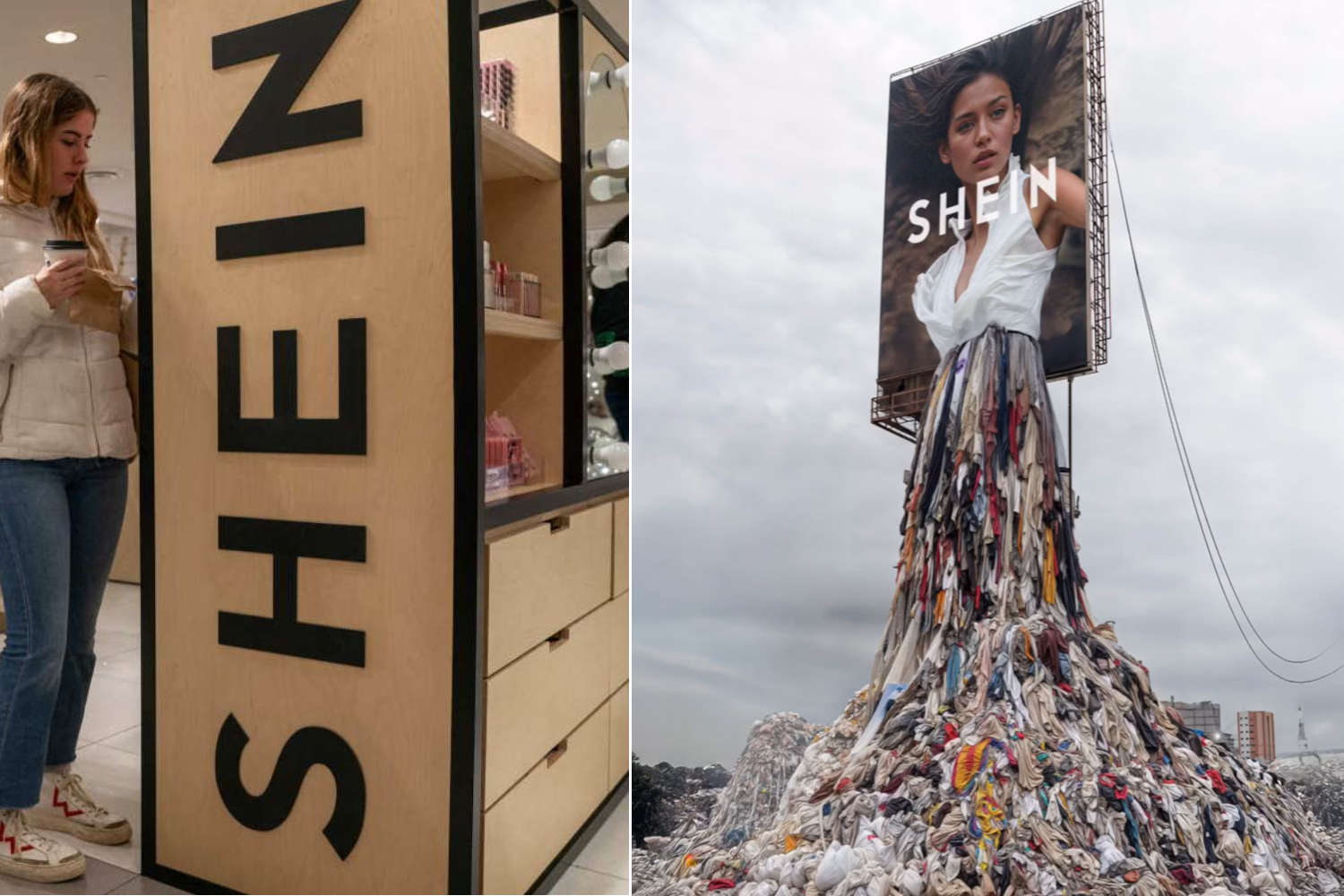A powerful visual work by artist Emanuele Jane Morelli denounces the devastating effects of fast fashion, using Shein as a symbol of an unsustainable system. The image depicts a model on a billboard, whose “skirt” turns into a mountain of textile waste, symbolizing the environmental and social impact hidden behind low-cost clothing.

@jane_morelli/Instagram
In a striking and symbolic image created using artificial intelligence, designer Emanuele Jane Morelli lays bare the contradictions of fast fashion. At first glance, the visual centers around a billboard for Shein featuring a model dressed in white. But what truly captures attention is what lies beneath: the model’s body merges into a mountain of discarded clothing, cascading down like a massive skirt made of textile waste.
Created with Midjourney, the image is both an artistic and social critique of a system that, beneath the promise of cheap and accessible clothing, hides a reality of exploitation, pollution, and compulsive consumerism. Every impulsive purchase, every viral “haul” on social media, every $2 top, feeds the towering pile of waste this image brings to life.
This dress of trash is a wake-up call
That skirt of waste represents more than just discarded fashion — it’s a symbol of an unsustainable economic model: one that extracts resources, produces at breakneck speeds, pollutes extensively, and then discards everything. All in the name of a fashion cycle that moves as fast as TikTok trends but leaves deep scars on the planet and its people.
The choice of Shein is no accident. It is one of the most hotly debated examples of ultra-fast fashion — a global giant built on ultra-low prices, viral marketing, and lightning-fast production. But behind the bargain prices lies a darker story: precarious labor conditions, non-biodegradable synthetic fabrics, and mountains of textile waste dumped in landfills across the Global South.
“This is not an exaggeration. It’s a mirror.”
That’s the message accompanying the image. And it couldn’t be more blunt: this isn’t a Black Mirror-style dystopian future — it’s already happening. It’s the world we’re living in.
Time to rethink our choices
We need to stop glorifying economic models built on overproduction and exploitation, and start imagining a different path: slower, fairer, cleaner. Because every purchase is a choice, and every choice shapes our present — and our future.
